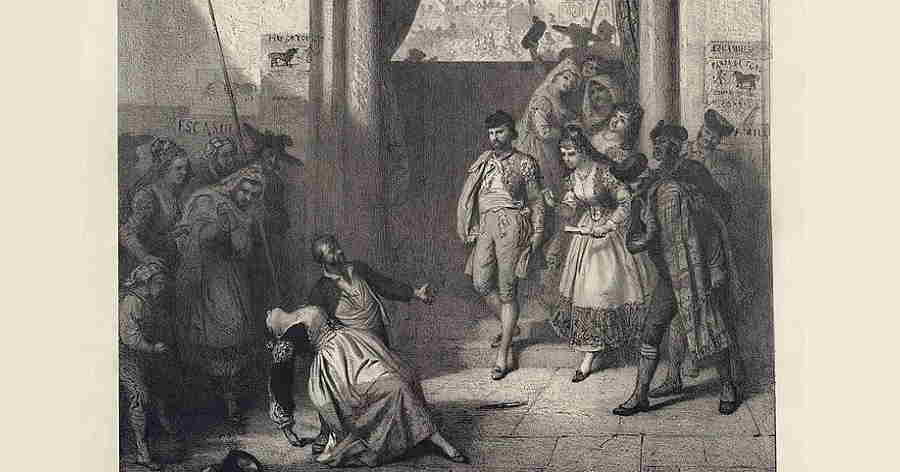
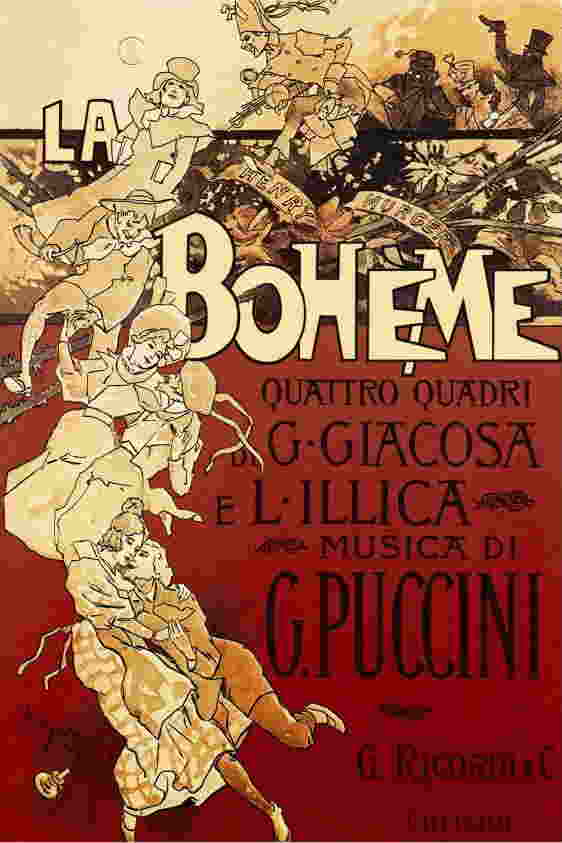
La Boheme, Giacomo Puccini’s romantic opera, is widely considered to be one of the best operas ever written. Set in the Latin Quarter of Paris in the 1830s, the story follows the love affair of two impoverished Bohemian lovers, Rodolfo and Mimi, as they struggle to find their place in the world. The opera is filled with emotion, tragedy, and ultimately, hope as the two lovers strive to survive despite their difficult circumstances. The music of La Boheme is a testament to Puccini's genius. He skillfully uses a range of emotions to create a beautiful and powerful experience for the audience. From the passionate arias of Mimi and Rodolfo to the lighthearted duets of Marcello and Musetta, Puccini creates a vivid and engaging soundscape. He also uses traditional Italian bel canto techniques to draw in the audience and make them feel a part of the action.
La Boheme is renowned for its strong characterizations and emotional power. Puccini's characters are complex and sympathetic, and the audience is easily able to connect with them. Mimi is particularly beloved for her touching arias and her selfless love for Rodolfo. The characters are brought to life by the passionate acting of the opera's performers, and the audience is left with an unforgettable experience. The combination of powerful music, emotionally charged characters, and an engaging story make La Boheme one of the greatest operas of all time. Puccini's work has left an indelible mark on the world of opera, and it continues to be be loved by opera fans around the globe.
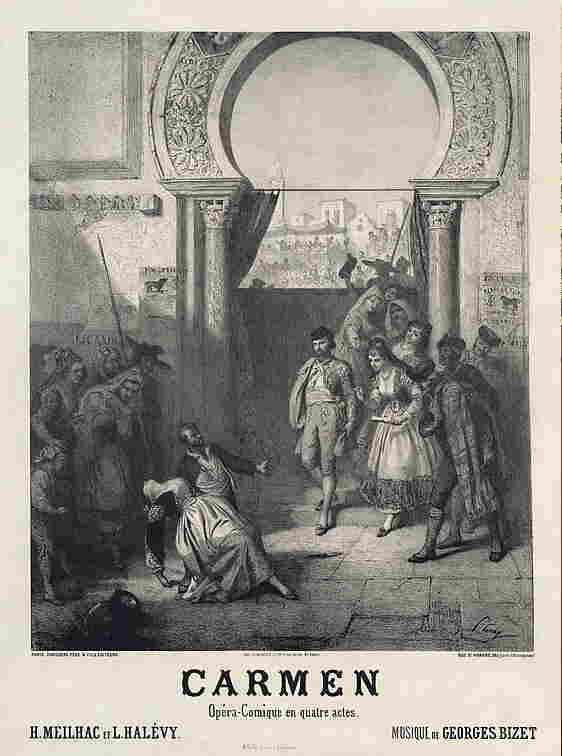
Carmen, composed by Georges Bizet, is considered to be one of the best operas ever written. It is a story about a beautiful gypsy girl who uses her charms to seduce a naive soldier and leads him into a world of danger. The music of Carmen is incredibly memorable and has stood the test of time. The music of Carmen is full of passionate emotion, with a Spanish flavor and a catchy rhythm. Bizet uses a variety of musical styles, from light-hearted waltzes to intense arias, to create a vivid picture of the characters and their stories. The melodies are beautiful and instantly recognizable, and the vocal lines are incredibly powerful.
The characters of Carmen are complex and interesting. Carmen is a passionate and independent woman who is determined to make her own way in the world. The soldier, Don José, is a naive young man who falls in love with Carmen, despite her dangerous lifestyle. The other characters, such as the toreador Escamillo and the gypsy Zuniga, add to the drama and tension of the story. The structure of Carmen is also remarkable. Bizet uses a variety of dramatic techniques to keep the audience engaged, such as the use of recitatives and arias, and the use of a chorus to narrate the story. The action is intense and exciting, and the music adds to the drama and suspense.
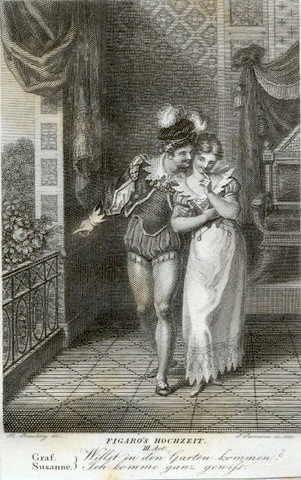
The Marriage of Figaro, Wolfgang Amadeus Mozart’s best opera, is a masterpiece of the classical period. This comedic opera, with a libretto by Lorenzo Da Ponte, is based on a play by Pierre Beaumarchais. The story follows the antics of Count Almaviva and the servants of his estate as they try to outwit the Count in order to arrange the marriage of Figaro, the Count’s valet, and Susanna, the Countess’ maid. The music of the opera is considered some of the finest ever written for the stage. Mozart’s score is filled with intricate melodies, complex harmonies, and a wide range of emotions. From the joyous overture to the poignant duets between Figaro and Susanna, the music captures the joys, sorrows, and loves of the characters.
The Marriage of Figaro is an opera full of comedy and wit. The characters are constantly scheming and outwitting each other, making it an exciting and entertaining piece. The story follows the servants as they attempt to thwart the Count’s attempts to seduce Susanna. The opera also addresses themes of social class, as the Count is constantly trying to assert his authority over the servants.
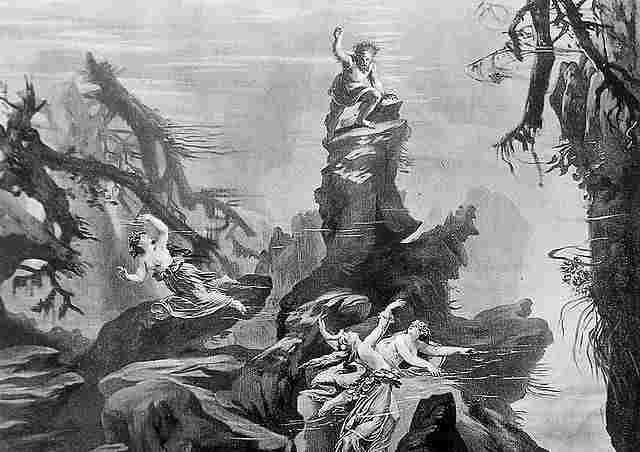
Der Ring des Nibelungen, or The Ring of the Nibelung, is considered by many to be the best opera of all time. Written by German composer Richard Wagner and premiered in 1876 at the Bayreuth Festival in Bavaria, the four-part opera is based on Norse and Germanic mythology. The Ring of the Nibelung is a work of considerable magnitude, and has been described as the greatest musical drama ever composed. The story of the Ring is one of gods and giants, of love and betrayal, of fate and destiny. It follows the struggles of the hero Siegfried, as he battles to win the Ring of the Nibelung and restore peace and harmony to the world.
The four operas that make up Der Ring des Nibelungen are: Das Rheingold, Die Walkure, Siegfried, and Gotterdammerung. The music of the Ring is unique and complex, combining elements of classical music with Wagner's own invention, the 'leitmotif'. These musical motifs are associated with characters and ideas, and recur throughout the Ring. Wagner's Ring is considered by many to be the greatest opera ever written, and it remains one of the most performed and admired works in the history of opera.
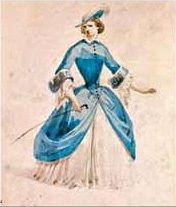
La Traviata, composed by Giuseppe Verdi, is considered one of the best operas ever written. The story is based on the novel La Dame aux camelias by Alexandre Dumas. It traces the story of a young woman named Violetta who is a high-society courtesan. She falls in love with a young man named Alfredo, who is from a wealthy family. Though their love is forbidden, they make plans to marry. However, Violetta is struck with a fatal illness, and when Alfredo's father discovers their relationship, he forces her to break off the engagement. The opera ends tragically with Violetta's death. The opera is set to the music of Giuseppe Verdi, which is a key factor in its success. He composed some of the most beautiful and passionate music in the history of opera. He used a variety of musical styles, including waltzes, polkas, and romantic melodies, to bring the story to life. He also incorporated a range of classical and Renaissance forms, such as arias, duets, and chorales.
The opera's dramatic structure is another key factor in its success. It is divided into three acts, with each act featuring a distinct emotional arc. The first act is filled with joy and romance, while the second is full of turmoil and tragedy. The third act is a poignant resolution of the story, with Violetta's death providing a tragic ending. La Traviata has become one of the most beloved operas of all time.
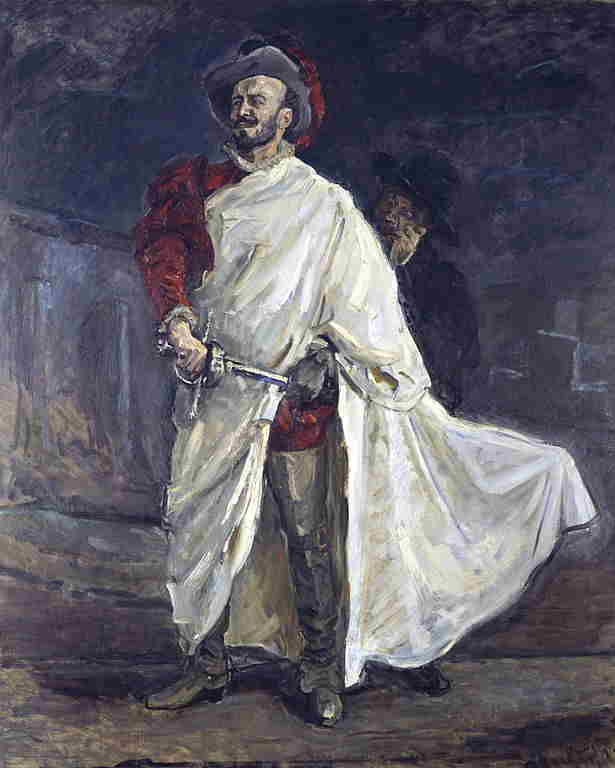
Don Giovanni is a two-act opera composed by Wolfgang Amadeus Mozart. It is widely recognized as being one of the best operas ever written, and is frequently cited as the greatest opera of all time. The story is based on the legend of Don Juan, a notorious Spanish libertine. The opera follows Don Giovanni, a young and impetuous womanizer, as he attempts to seduce multiple women and ultimately suffers the consequences of his actions. The main characters include Don Giovanni, his servant Leporello, and the various women Don Giovanni attempts to seduce. The main antagonist is the ghost of Don Giovanni's victim, Don Ottavio's father, who is determined to exact revenge on Don Giovanni.
The music of Don Giovanni is one of Mozart’s best-known works and is often considered to be some of the finest opera music ever written. Mozart’s use of tonal shifts and melodic variation to create an emotional atmosphere is unparalleled. The score is filled with beautiful arias, duets, and ensemble pieces that convey the characters’ emotions and thoughts. The libretto, written by the Italian poet Lorenzo Da Ponte, is considered to be one of the finest opera librettos ever written. Da Ponte’s use of wit, irony, and satire creates a unique and engaging story that captures the attention of the audience. Don Giovanni is a timeless masterpiece that has captivated audiences for centuries. Its complex characters, beautiful music, and engaging story make it one of the best operas ever written. Its popularity has endured throughout the centuries, and it is regularly performed in opera houses around the world. It is a masterpiece of composition and is sure to enthrall audiences for generations to come.
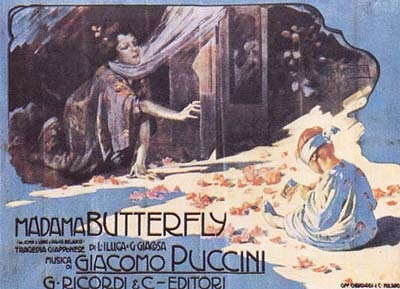
Madame Butterfly is an opera in three acts by Giacomo Puccini, with an Italian libretto by Luigi Illica and Giuseppe Giacosa. It is based on the play of the same name by John Luther Long and David Belasco. Puccini's Madame Butterfly is one of the most beloved operas of all time and is considered one of the best operas ever composed. Set in late 19th-century Japan, Madame Butterfly tells the story of a young Japanese geisha, Cio-Cio-San, who falls in love with an American naval officer, Lieutenant B.F. Pinkerton. Despite the disapproval of Pinkerton's superiors, the two marry and Pinkerton leaves Japan. Three years later, he returns with his American wife, Kate, and demands a divorce from Cio-Cio-San. Heartbroken and betrayed, Cio-Cio-San is prepared to take her own life in order to save her honor.
Puccini's music for Madame Butterfly is absolutely stunning, and his use of the orchestra to create vivid musical images and emotional depth is unparalleled. The arias are full of passion, longing, and sorrow, and the opera as a whole is a masterful work of musical storytelling. Puccini's music is also highly eclectic, incorporating elements of Japanese music, as well as folk, classical, and popular styles. In addition to its musical excellence, Madame Butterfly is a powerful emotional experience. Its story of love and betrayal is heartbreaking, and Puccini's music amplifies the tragedy of Cio-Cio-San's story. The ending of the opera, in which Cio-Cio-San takes her own life, is one of the most powerful and moving moments in all of opera.
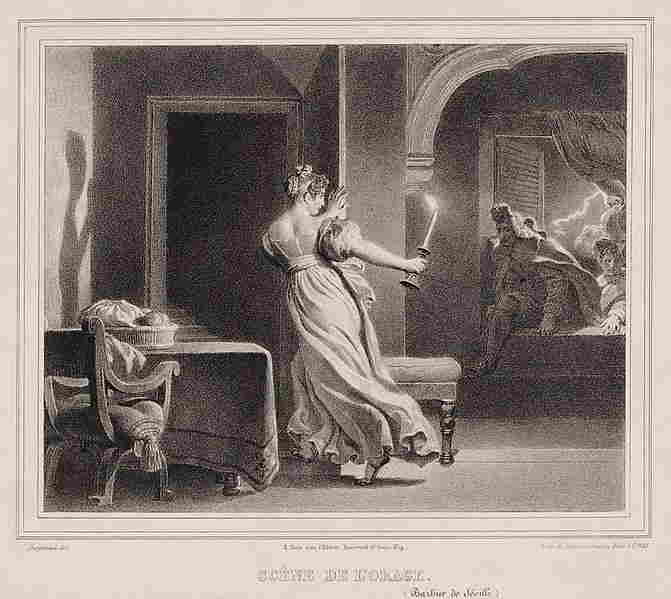
The Barber of Seville by Gioacchino Rossini is considered one of the best operas of all time. Written in 1816, the comic opera tells the story of the young Count Almaviva's attempts to win the heart of the beautiful Rosina, despite the machinations of her elderly guardian, Doctor Bartolo. The titular barber of Seville, Figaro, helps Almaviva carry out his plan, while also dealing with a variety of other characters whose actions add to the humor of the piece. The Barber of Seville is renowned for its creative and inventive use of the musical form. Rossini's score is full of delightful melodies and energetic rhythms, making it an instant audience favorite from the moment it was first performed. The overture alone, with its fast and joyous pace, is one of the most recognizable pieces of classical music ever written.
The opera's arias and ensembles also showcase Rossini's remarkable skill in creating vibrant and memorable musical passages. The opera's libretto, written by Cesare Sterbini, is full of witty and humorous dialogue and situations. The characters, from the bumbling Doctor Bartolo to the conniving and scheming Figaro, are instantly recognizable and lovable. The libretto also contains some social and political satire, which helped to make the work both popular and controversial when it was first performed.
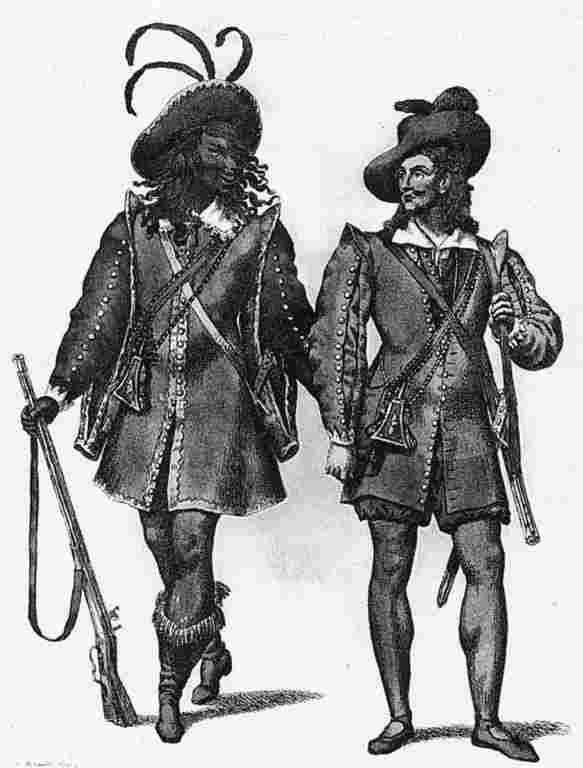
Der Freischütz, by Carl Maria von Weber, is widely considered to be one of the greatest operas of all time. It is a romantic opera with a supernatural theme, based on a German folktale, and is set in the 18th century. The story follows a young hunter, Max, who is determined to win the hand of his beloved Agathe. To do so, he makes a deal with the devil, who grants him seven magic bullets that will never miss their target. However, Max soon finds himself in a dangerous situation as his rival, Caspar, also has access to the bullets. Der Freischütz is noted for its innovative and original music, which is considered to be the first true German opera. Weber's music is highly melodic, and he uses a wide variety of instruments and harmonies to create a unique sound that captures the mood and atmosphere of the story. The overture and the finale are especially famous, and are often performed separately from the rest of the opera. The libretto, written by Friedrich Kind, is also highly praised. It is a complex and intricate story, which is both exciting and touching. The characters are well-developed and believable, and the plot is filled with thrilling moments and poignant scenes. Der Freischütz is an opera that appeals to both music and drama lovers. It is a timeless classic that stands the test of time.